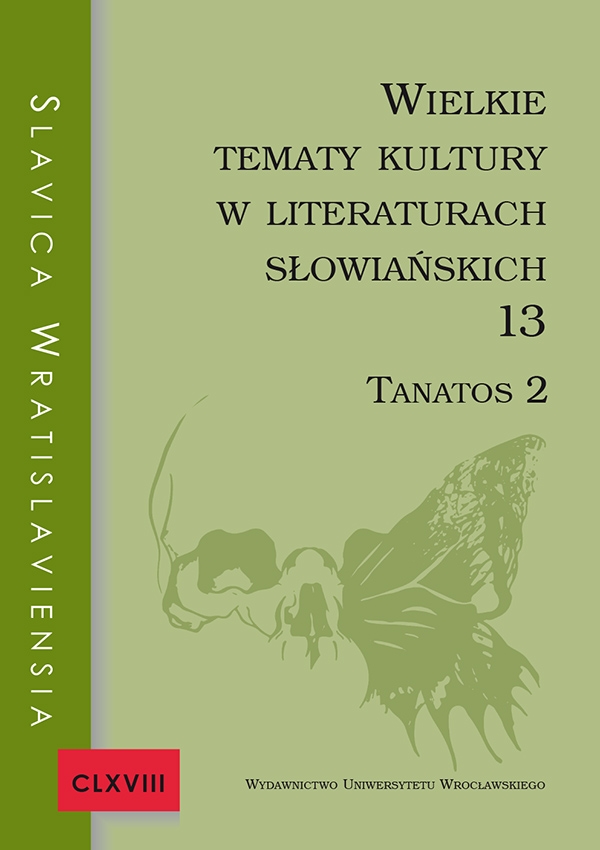

Literatury Słowiańszczyzny południowej

Carnival with the dead Miroslav Krleža: Kraljevo
Kraljevo, a one-act play written by Miroslav Krleža in 1915, is a representation of “carnival” events accompanying a church fair day in the cathedral of St. Stephen in Zagreb. Among the participants of the fair party, are the suicides condemned to eternal wandering between the worlds of the dead and of the living. The article’s goal is to reflect on the function of death’s anthropomorphization in the expressionistic image of Zagreb society. Krleža exposes how loftiness is replaced with base erotic instincts, and reveals that when society is immersed in medieval rituals, what results is a cannibalistic vision of nonreality of hell, which serves to render Zagreb at the beginning of the 20th century. The author’s carnival with the dead reverses values, orders, and hierarchies, and undermines at least three essential components of identification: ludic tradition derived from local folklore, Catholic pathos, and Croatian patriotism.
Karnawał ze zmarłymi Miroslav Krleža: Kraljevo
Jednoaktówka Mirosława Krležy z 1915 roku, zatytułowana Kraljevo, jest zapisem „karnawałowych” wydarzeń towarzyszących dniu odpustu w zagrzebskiej Katedrze świętego Stefana. W jarmarcznej zabawie uczestniczą samobójcy skazani na wieczne błądzenie pomiędzy światami żywych i umarłych.
Celem artykułu jest namysł nad funkcją antropomorfizacji śmierci w ekspresjonistycznym obrazie zagrzebskiego społeczeństwa. Krleža pokazuje wzniosłość zastąpioną przez niskie erotyczne popędy, społeczeństwo zanurzone w średniowiecznych rytuałach, rysuje kanibaliczną nierzeczywistość piekła — Zagrzebia początku XX wieku. Krležiański karnawał ze zmarłymi odwraca wartości, porządki i hierarchie, a także podważa co najmniej trzy istotne elementy identyfikacyjne: ludyczną tradycję wyrastającą z folkloru, katolicki patos i chorwacki patriotyzm.